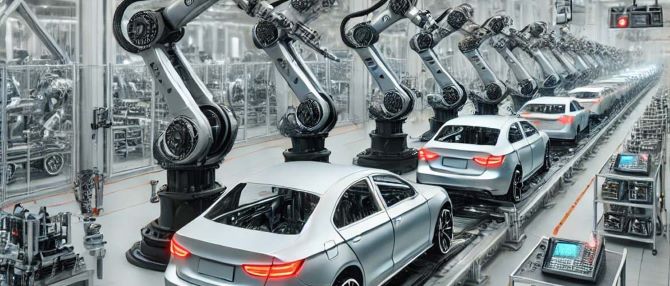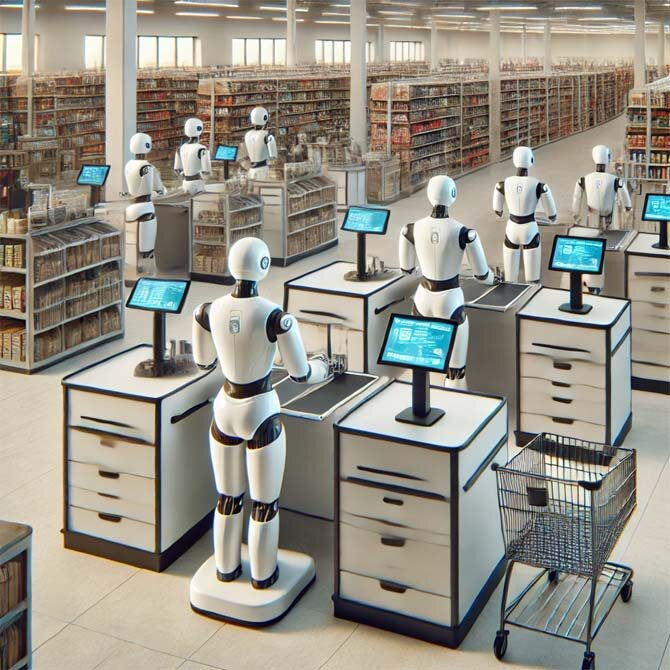Artificial intelligence (AI) and automation are becoming a part of our lives. They already help us in everyday activities, such as online shopping or navigating around the city. But as these technologies advance, questions arise about the future of our work. Let’s figure out what the pros and cons of automation are and how it can affect us.
Benefits of Automation
Automation can make our lives a lot easier. Robots and AI can perform many tasks faster and more accurately than humans. This is especially important in areas such as manufacturing and logistics. Robots can free people from painstaking, hard and monotonous work.
Large factories are already using robots to assemble cars. These iron assistants work around the clock, do not get tired and do not make mistakes that a person can make. Thanks to them, production becomes faster and cheaper.
Robots have already practically replaced people in the production of microchips and micromechanisms.

Improving quality of life
Automation can also improve our quality of life. Smart homes with AI can control lighting, heating and even cooking. This frees up time for more enjoyable activities, such as hobbies or spending time with family.
Imagine that you come home and the smart home has already turned on the lights, heated the water for the bath and started preparing dinner. These are not just fantasies – such systems already exist and are becoming more accessible. Now, instead of standing at the stove, you can spend time with your loved ones.

Disadvantages of Automation
However, automation also has its disadvantages. One of the main issues is job loss. Many people may lose their jobs if they are replaced by robots, that is, where their replacement is not required, but will reduce maintenance or production costs.
In 2019, a study found that about 25% of all jobs in the United States are at risk of automation. This applies primarily to low-skilled professions, such as cashiers or drivers. Imagine: robots at the store checkout, and not a single living person with whom you could exchange a word.

Need for retraining
To adapt to new conditions, people will have to learn new professions and skills. This can be difficult, especially for those who have been working in their field for many years.
A trivial example: Maria, who worked as a seamstress for over 30 years, lost her job due to the introduction of automated sewing machines. She had to take a programming course to find a new job in the IT field. For Maria, who had been performing certain mechanical actions for many years, it was super difficult to relearn, but in the end she mastered a new profession and now works with AI.

Impact on social inequality
Automation can increase social inequality. People with low levels of education and qualifications will be the first to lose their jobs. This could lead to a widening gap between rich and poor.
In countries with high levels of automation, such as Japan or Germany, the unemployment rate for low-skilled workers is significantly higher than for those working in high-tech industries.

AI and automation come with both pros and cons. On the one hand, they can significantly improve our quality of life and increase production efficiency. On the other hand, they can lead to job losses and increased social inequality. It is important to remember that these technologies are still far from complete autonomy and require monitoring and regulation. We need to be prepared to change and learn new things to adapt to a new world where AI and robots will play an increasingly important role.
To be continued…







Only registered users can leave comments